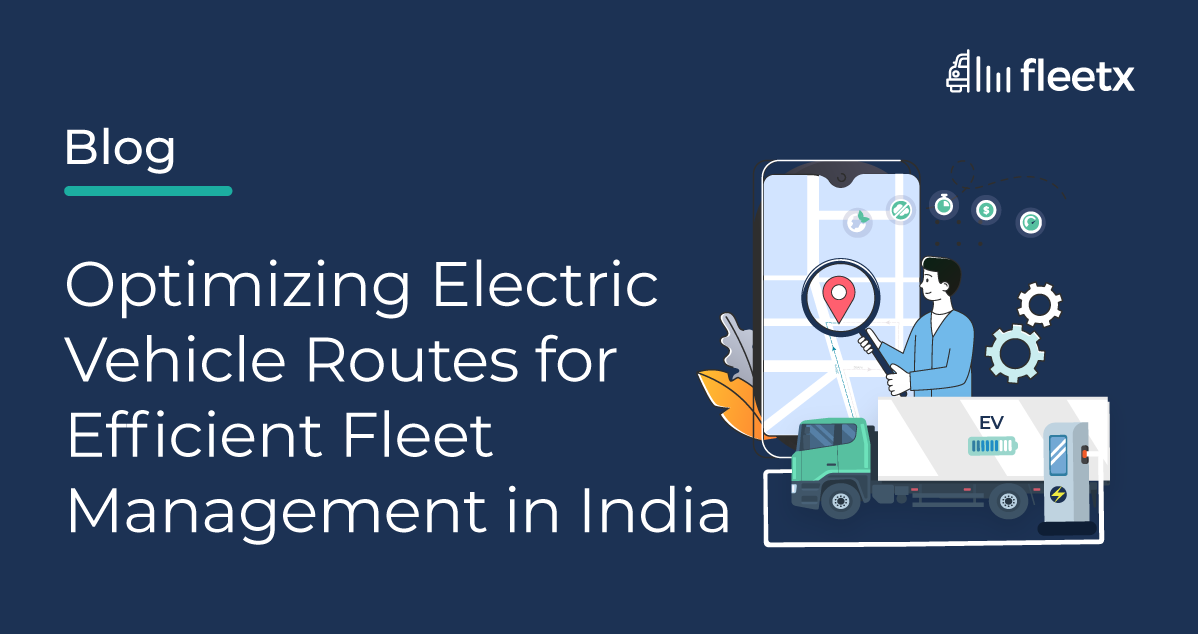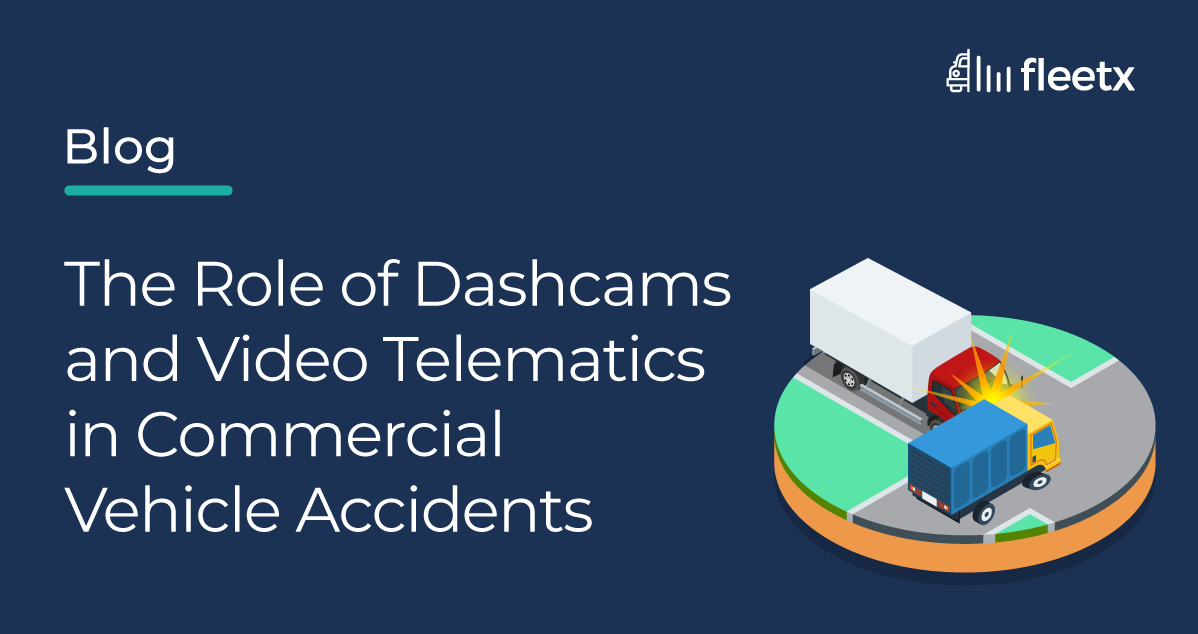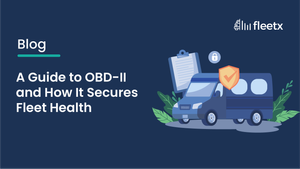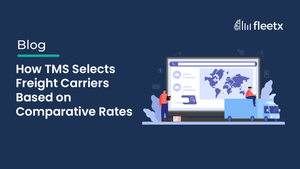
In the ever-evolving landscape of fleet management, a notable transformation is taking place as electric vehicles (EVs) become a priority for efficient and sustainable operations. The Government of India, with its global commitment to reducing carbon emissions and embracing clean energy solutions, has been promoting a systemic shift towards EVs in both the private and public sector.
The EV Revolution in Indian Fleet Management
Electric vehicles are fast becoming a favored option for last-mile and local deliveries as their benefits are two-fold: they are environmentally friendly, and promote cost savings in a time when fuel prices keep rising. By eliminating tailpipe emissions and relying on electricity, EVs contribute significantly to reducing air pollution in the city and have lower carbon footprints. Moreover, lower operating and maintenance costs make them an economically sound choice for fleet operators.
While the promise of EVs is undeniable, they are still a ‘new’ solution, and as a result present some unique challenges, which can limit their potential. A noteworthy limitation is the battery range and the availability of charging infrastructure, which influence route planning. Efficiently mapping out routes requires meticulous consideration of these factors to prevent range anxiety and optimize charging opportunities.
Leveraging Technology for Optimal Routing
Effective EV route optimization depends on how available data is used. Real-time traffic information, historical patterns, and predictive analytics can help to optimise routes; using this data, fleet managers can navigate traffic bottlenecks, weather conditions, and time constraints, leading to streamlined operations.
There are now several smart solutions to facilitate this- cutting-edge advancements in technology like machine learning and the Internet of Things (IoT) enable dynamic route management. These technologies empower vehicles to adapt in real-time to changing conditions, thereby enhancing efficiency and reducing travel time. Here's a closer look at how technology is transforming route optimization for EV fleets:
a. Machine Learning (ML) and Predictive Analytics: Machine learning algorithms process vast amounts of historical data to predict traffic patterns, road closures, and other dynamic factors. These predictions enable real-time route adjustments, ensuring that EVs take the most efficient path. ML algorithms continuously learn from new data, improving route recommendations over time.
b. Internet of Things (IoT) Sensors: IoT devices on EVs gather real-time data on vehicle performance, battery status, and environmental conditions. This data is transmitted to a central system, allowing fleet managers to monitor each vehicle's health and make informed decisions about routing. For instance, if a vehicle's battery level is lower than expected, the system can automatically reroute it to a nearby charging station.
c. Dynamic Traffic Management Systems: Intelligent traffic management systems use data from various sources, including GPS devices, mobile apps, and road sensors, to monitor traffic flow in real-time. These systems can proactively guide EVs away from congested routes and toward less-traveled roads, reducing travel time and energy consumption.
d. Vehicle-to-Grid (V2G) Integration: V2G technology enables bi-directional communication between EVs and the power grid. Fleet managers can optimize routes to include stops at charging stations equipped with V2G capabilities. This allows EVs to not only charge but also discharge excess energy back into the grid during peak demand periods, creating new revenue streams for fleet operators.
e. Simulation and Scenario Planning: Advanced route optimization platforms offer simulation and scenario planning features. Using this, fleet managers can simulate different routes and scenarios before implementation, considering specific factors like charging time, traffic conditions, and vehicle availability. This proactive approach ensures that routes are optimized for both efficiency and reliability.
Telematics for Efficient EV Route Optimization
Telematics is an important tool in for EV fleet management, as it offers real-time insights and promotes data-driven decision-making capabilities. This, in turn, facilitates efficient route optimization for EV fleet managers. Here's how:
a. Real-Time Data Collection: Telematics systems collect a wealth of real-time data from EVs, including battery status, location, vehicle speed, and driving behavior. This data is transmitted to a centralized platform, enabling fleet managers to monitor EVs remotely and make informed decisions based on current conditions.
b. Battery Health Monitoring: Monitoring the health of EV batteries is crucial for optimizing routes and preventing unexpected breakdowns. Telematics systems continuously assess battery performance and provide insights into factors such as state of charge, temperature, and degradation. Fleet managers can use this data to plan routes that optimize battery usage and extend battery lifespan.
d. Route Optimization and Efficiency: Telematics data, when combined with advanced analytics, can guide route optimization strategies. Fleet managers can monitor traffic conditions, vehicle status, and charging station availability in real time. This enables immediate route adjustments to avoid congested areas and ensure that EVs follow the most efficient paths.
e. Energy Consumption Analysis: Telematics systems provide insights into energy consumption patterns for individual EVs. Fleet managers can identify energy-efficient driving behaviors and use this information to train drivers, further optimizing energy usage and extending the range of EVs.
Looking Ahead
The future of EV fleet management in India holds exciting possibilities. Advancements in EV technology, coupled with innovative and smart solutions, promise even greater efficiency and sustainability. As charging infrastructure continues to expand in India and EV battery range improves, fleet managers can expect to achieve new levels of operational excellence.
To sum up, optimizing electric vehicle routes promises to be a fruitful strategy for Indian organizations with electric vehicle fleets. By embracing the EV revolution, leveraging data-driven insights, and integrating advanced technologies, fleet managers can navigate challenges and unlock the full potential of their electric fleets.







